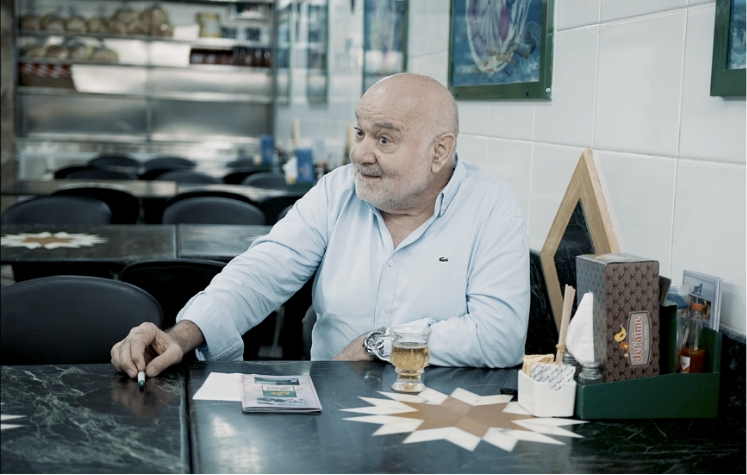You Will Defs Like these too
Life Video of The Day

Lux vs. Low: MakeupJul.19.2020
New at The Modern East
Sign Up To Our Newsletter
[ninja_forms_display_form id=20]

When I was younger, I used to always say I was “a white boy stuck in a brown sac.”

For the longest time, and more importantly, through my pre-teen and teen phase––an incredibly impressionable phase––this was the motto I repeated to myself every morning and every night. And today, I am suffering the consequences of having to unlearn this idea I ingrained in my head. Every day, I try to decolonize. But, what I’m realizing so quickly is that my very existence is my decolonizing, my poetry, my resistance. A more tangible initiative that I took upon myself so that I can continue to decolonize myself and to foster a platform for other peripheral and colonized voices to unlearn and be stripped and unhinged from the colonial regime is @thecolonizedproject on Instagram. Now, I don’t necessarily scream local Egyptian: I have a rather “American” English accent––whatever that means, to sound “American”––I go to a private American institution, I live between Dubai and Abu Dhabi, delocalized from home: Egypt, having moved around from a very young age. For me, The Colonized Project is my daily reminder of my existence being my resistance. For me, it is a constant struggle to decolonize but in that, to remember my roots and to speak about them. With The Colonized Project I have been able to voice some innate and more intimate self reflections and vexed apprehensions about colonialism, but I have also been able to tap into an art form I never thought I would tap into: visual art.

Now, don’t be misled by this notion of “visual art”––I am no painter nor can I––what I have come to realize––play with clay to create a sculpture for the life of me. But, what I can do is feel. What I can do is create. And, for me, this is enough. I am not a photographer, a creative director, an “artist” in the conventional sense, nor am I a fashion designer, curator, or any of that sort. I’m just a student in a college dorm conversing with my vexed colonial misery and I’m fed up. The Colonized Project, from today’s perspective, is taking a shift for me. On the one hand, I am still unlearning a regime that has imposed its rules, traditions, and culture onto me, and that has––excuse the bluntness––literally manspread its entire existence onto me. But, on the other hand, I am finding myself feeling and thinking, feeling and creating, feeling and expressing. This is where The Colonized Project has shifted for me. I released my first set of visual representations I called “The Colonized Diaspora” to showcase my friends and I––all being “Dubai kids” and all having lived outside home––to demonstrate the reverberating effects colonization has had on us. In many ways, we were uprooted from our local and saturated with the unfamiliar. Even more frustrating, we assimilated into the colonial rather unconsciously–-whether it be the music we played, the books we read, the teachers that taught us, or the culture we surround ourselves with, we were knee deep in the colonial without even knowing it at the time, but without even choosing to do so. We were kids. Our parents moved out of home because of war or work, or both, and here we are more comfortable to express our thoughts in English while trying to pick up what we can from our mother tongues that didn’t have enough time to nurture us.

My second set of visual representations included notions of masculinity titled “Masculinity لشباب†العرب†” [Masculinity for the Arab youth]. In this set of representations, I started unlearning, with my viewer, what it means to be masculine or feminine, and as always, supported by an unlearning of coloniality. In everything I do, it always comes down to my own positionality and so it will always come down to colonialism. With this series however, I’m planning on going more “local” in a sense––that is to speak rather bluntly, through a series of photos with captions, depicting the nature of gendered sexual violence in Egypt. Here, The Colonized Project takes another role: entertaining the local and the delocalized, but in doing so, it continues to unlearn. My objective with this series is hopefully to spark some controversy of course, but also to put things rather bluntly. It’s time for local and global change and the time is present and change is brewing.

The goal I have with The Colonized Project is primarily to decolonize, but also to dismantle and take back our narrative. This is our story to dismantle and this is our story to rewrite. In today’s world, we talk about the “post colonial” but there’s nothing “post” about it––colonialism still lives everyday and it mutates exponentially. The Colonized Project, in today’s world, is my act of rebellion.

